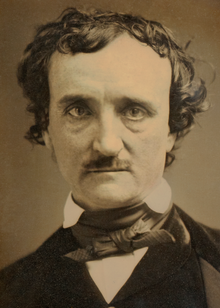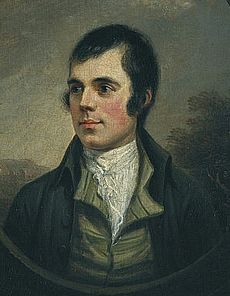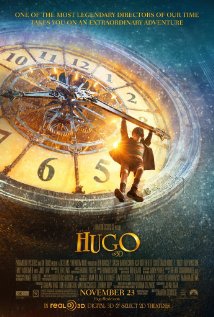● Definition
Young-adult fiction or young adult literature (often termed as "YA"), also juvenile fiction, is fiction written, published, or marketed to adolescents and young adults, although recent studies show that 55% of young-adult fiction is purchased by readers over 18 years of age. The Young Adult Library Services Association of theAmerican Library Association defines a young adult as someone between the ages of twelve and eighteen. Authors and readers of young adult novels often define the genre as literature as traditionally written for ages ranging from sixteen years up to the age of twenty-five, while Teen Fiction is written for the ages of ten and to fifteen. The terms young-adult novel, juvenile novel, young-adult book, etc. refer to the works in the YA category.
YA literature shares the following fundamental elements of the fiction genre: character, plot, setting, theme, and style. However, theme and style are often subordinated to the more tangible elements of plot, setting, and character, which appeal more readily to younger readers. The vast majority of YA stories portray an adolescent, rather than an adult or child, as the protagonist.
Themes of young-adult fiction: Life and death, dream and adventures, love and lost.
Literary modernism, or modernist literature, has its origins in the late 19th and early 20th centuries, mainly in Europe and North America. Modernism is characterized by a self-conscious break with traditional styles of poetry and verse. Modernists experimented with literary form and expression, adhering to Ezra Pound's maxim to "Make it new". The modernist literary movement was driven by a conscious desire to overturn traditional modes of representation and express the new sensibilities of their time. The horrors of theFirst World War saw the prevailing assumptions about society reassessed. Thinkers such as Sigmund Freud questioned the rationality of mankind.
In literary criticism, a bildungsroman (German pronunciation: [ˈbɪldʊŋs.ʁoˌmaːn]; German: "novel of formation/education/culture"), novel of formation, novel of education, or coming-of-age story (though it may also be known as a subset of the coming-of-age story) is a literary genre that focuses on the psychological and moral growth of theprotagonist from youth to adulthood (coming of age), and wherein character change therefore is extremely important.
Coming of age is a very young person's transition from childhood to adulthood. The age at which this transition takes place varies in society, as does the nature of the transition. It can be a simple legal convention or can be part of a ritual, as practiced by many societies. In the past, and in some societies today, such a change is associated with the age of sexual maturity (early adolescence); in others, it is associated with an age of religious responsibility. Particularly in western societies, modern legal conventions which stipulate points in late adolescence or early adulthood (most commonly 16-21 when adolescents are generally no longer considered minors and are granted the full rights and responsibilities of an adult) are the focus of the transition. In either case, many cultures retain ceremonies to confirm the coming of age, and significant benefits come with the change.
● 4 basic questions

● Robert Burns:
Robert Burns (25 January 1759 – 21 July 1796) was a Scottish poet and lyricist. He is widely regarded as the national poet of Scotland and is celebrated worldwide. He is the best known of the poets who have written in the Scots language, although much of his writing is also in English and a light Scots dialect, accessible to an audience beyond Scotland. He also wrote in standard English, and in these writings his political or civil commentary is often at its bluntest.

A Red, Red Rose by Robert Burns
O my Luve's like a red, red rose
That’s newly sprung in June;
O my Luve's like the melodie
That’s sweetly play'd in tune.
As fair art thou, my bonnie lass,
So deep in luve am I:
And I will luve thee still, my dear,
Till a’ the seas gang dry:
Till a’ the seas gang dry, my dear,
And the rocks melt wi’ the sun:
I will luve thee still, my dear,
While the sands o’ life shall run.
And fare thee well, my only Luve
And fare thee well, a while!
And I will come again, my Luve,
Tho’ it were ten thousand mile.
● The invention of Hugo Cabret:
The Invention of Hugo Cabret is an American historical fiction book written and illustrated by Brian Selznick and published byScholastic. The hardcover edition was released on January 30, 2007, and the paperback edition was released on June 2, 2008. With 284 pictures between the book's 526 pages, the book depends as much on its pictures as it does on the words. Selznick himself has described the book as "not exactly a novel, not quite a picture book, not really a graphic novel, or a flip book or a movie, but a combination of all these things". The book won the 2008 Caldecott Medal, the first novel to do so, as the Caldecott Medal is for picture books.
Hugo is a 2011 3D historical adventure drama film based on Brian Selznick's novel The Invention of Hugo Cabret about a boy who lives alone in the Gare Montparnasse railway station in Paris. It is directed and co-produced by Martin Scorsese and adapted for the screen by John Logan.

Hugo Cabret: I'd imagine the whole world was one big machine. Machines never come with any extra parts, you know. They always come with the exact amount they need. So I figured, if the entire world was one big machine, I couldn't be an extra part. I had to be here for some reason. And that means you have to be here for some reason, too.
Hugo Cabret: Maybe that's why a broken machine always makes me a little sad, because it isn't able to do what it was meant to do... Maybe it's the same with people. If you lose your purpose... it's like you're broken.
Georges Méliès: My life has taught me one lesson, Hugo Cabret, and not the one I thought it would. Happy endings only happen in the movies.
Isabelle: This might be an adventure, and I've never had one before - outside of books, at least.
Isabelle: We could get into trouble.
Hugo Cabret: That's how you know it's an adventure.
Mama Jeanne: Georges, you've tried to forget the past for so long, but it has caused you nothing but unhappiness. Maybe it's time you tried to remember.
Georges Méliès: If you've ever wondered where your dreams come from, you look around... this is where they're made.


 留言列表
留言列表


